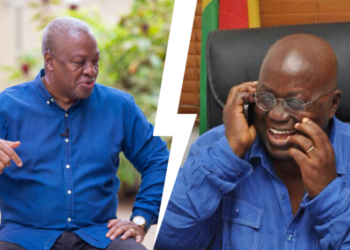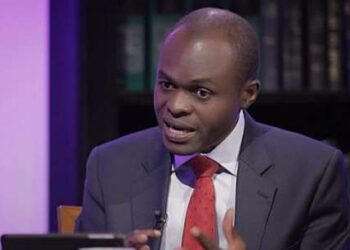A Supreme Court nominee, Justice Ernest Yao Gaewu, has told the Appointments Committee of Parliament that he is no longer a member of the New Patriotic Party (NPP).
He said he resigned from the party on September 16, 2020, and, therefore, gave the assurance that if approved as a justice of the apex court, he would discharge his mandate devoid of any political interference.
Answering a question by the National Democratic Congress (NDC) MP for Bodi, Sampson Ahi, who wanted to know what his position would be if a case involving the NPP and the NDC was brought before him as a justice of the Supreme Court, the nominee gave an assurance that he would remain a neutral arbiter in all cases involving the NPP and the NDC.
Questions
The nominee responded to various questions from the 25-member committee, chaired by the First Deputy Speaker, Joseph Osei-Owusu.
The questions pertained to interference by the Supreme Court in the mandate of the legislature; whether the Standing Orders of Parliament were in conflict with the Constitution; his views on whether the Deputy Speaker formed part of quorum in decision-making in Parliament; his views on the integrity of the Judiciary; the death penalty and compliance with the asset declaration law.
Per the curriculum vitae of the nominee, while he was in private practice as a lawyer, he was politically active, particularly between 2009 and 2016, having served as a constituency chairman and parliamentary candidate of the NPP in the Ho West and the Ho Central constituencies.
Neutral arbiter
Justice Gaewu said while there were no provisions in the Constitution that barred a justice of the High Court from being a member of a political party, the manner in which the Judiciary was created required one to be “a neutral arbiter”.
He said there was no way a justice of the court could belong to a political party.
Agreeing that the Constitution itself was a political document and that every decision a judge made contained some amount of politics that could be private, he, however, said judges were barred from being partisan.
Supreme Court rulings
His views were sought on the recent ruling by the Supreme Court that gave the notion in certain circles that the Judiciary was interfering in the mandate of the Legislature.
Responding, Justice Gaewu said he did not necessarily share the view that the apex court was interfering in the mandate of the Legislature.
Experience
When he was quizzed if he had the experience to assume the highest office of a justice of the Supreme Court, given that he had been a justice of the High Court for just two years following his appointment in September 2020, Justice Gaewu said: “I have the required and requisite experience to sit as a justice of the Supreme Court.”
“The qualification is 15 years at the bar, but I have 22 years’ qualification and I am not the first person to have ever been appointed. There are people who are appointed straight from the bar without any judicial or bench experience; I have been on the bench and I already have the necessary experience to sit there,” he said.
Judicial independence
On what must be done to insulate the Judiciary from political influence, the nominee said the Constitution provided for the administrative, judicial and financial independence of the Judiciary.
He, however, said while the two first independent elements were guaranteed “I cannot speak on financial independence of the Judiciary”.
On the question whether he did comply with the law on asset declaration when he was appointed a justice of the High Court, Mr Justice Gaewu said “I did”.
Justice Asiedu vetted
Earlier, another nominee, Justice Samuel Kwame Adibu Asiedu, had suggested that rather than worsening the current overcrowding situation in the prisons, suspects should be engaged in community service, especially in their communities.
To him, that would help decongest the prisons and also serve as a deterrent to suspects who might be uncomfortable being seen by members of their own communities doing such exercise.
Answering questions asked by the committee, Justice Asiedu, who is currently a justice of the Court of Appeal, said as part of measures to free the prisons, suspects who commit minor crimes could even be allowed to visit home during weekends to exercise their conjugal rights.
Law School admission
Commenting on the admission system to the Ghana School of Law, the nominee said lack of infrastructure was the cause of the restrictive admission process.
When the chairman of the committee suggested to the nominee that physical infrastructure could not be a barrier to study the programme because it should be possible to access education without physically being present, Justice Asiedu said the programme was such that one could not simply stay at home, read and come and write the examinations but would need physical training to prepare students to perform.
SEND A STORY: Do you have a story for us or need a promotion / advertisement? Submit them via our email dannyboy744@gmail.com and via on +233 266777777














